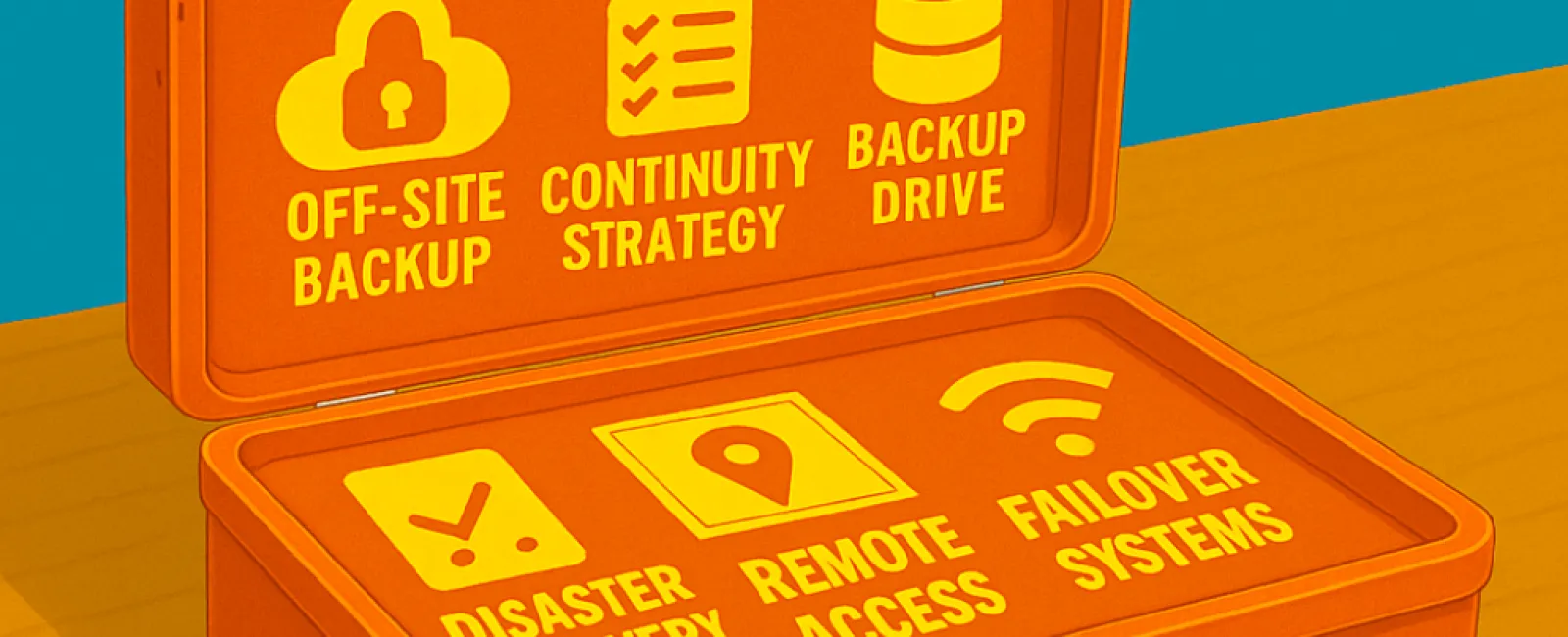July 28, 2025
Unexpected power failures, cyberattacks, hardware malfunctions, and natural calamities often strike without warning, posing severe threats to small businesses. While many believe that having backups is sufficient, the reality is that simply restoring files doesn't guarantee your business stays operational. Without access to critical systems, the ability to support remote work, or effective communication with your team and clients, even brief interruptions can cause lasting damage. A dependable IT partner does more than just maintain backups—they develop a comprehensive strategy to ensure your business remains fully functional regardless of the challenge.
Backups Alone Won't Protect You—You Need a Robust Continuity Strategy
Backups are undeniably crucial, but they represent only a fraction of what's needed. What truly safeguards your business is a well-crafted business continuity plan—a forward-thinking approach designed to keep your operations running smoothly during and after any disruption.
When your systems fail, data becomes inaccessible, or your physical office is compromised, relying solely on a local backup won't cut it. Without a swift and organized recovery plan, you risk significant financial losses, damage to your reputation, and potential compliance violations.
Understanding the Critical Difference Between Backups and Business Continuity
Many businesses make this mistake:
●
Backups focus on data restoration.
●
Continuity ensures your business keeps running seamlessly, no matter the circumstance.
An effective continuity plan addresses vital questions such as:
●
What is our recovery time objective?
●
Where will our team operate if the office is unusable?
●
Which systems are absolutely critical for ongoing operations?
●
Who is responsible for initiating the recovery process?
Key elements included in a solid plan are:
●
Secure, off-site, and tamper-proof backups
●
Clearly defined recovery priorities and timelines (RTO/RPO)
●
Preparation for remote work capabilities
●
Redundant infrastructure and automatic failover systems
●
Frequent disaster recovery drills and testing
If your IT provider cannot confidently guide you through these critical components, it's not protection you have—it's just luck.
Could This Really Happen to Your Business?
This isn't just a scare tactic—these are real-world events with devastating impacts. Recently:
●
Florida hurricanes forced numerous businesses to shut down, especially those lacking cloud access.
●
North Carolina floods wiped out on-site servers, erasing vital records and invoices.
●
California wildfires destroyed entire offices in Pacific Palisades, many without any off-site recovery plan.
●
Numerous small businesses struck by ransomware attacks discovered their backups were either corrupted or untested.
Disasters don't only affect large corporations—they impact businesses just like yours every day.
Essential Questions You Should Be Asking Today
If disaster strikes tomorrow, will your business keep running?
Ask your IT provider these critical questions:
●
How quickly can we recover from a ransomware attack?
●
Are our backups regularly tested and comprehensive?
●
What is the contingency plan if our office is affected by flood or fire?
●
Does our continuity plan comply with industry regulations?
●
Can we continue serving clients if our team must work remotely?
If you aren't fully confident in these answers, your business is vulnerable.
Disasters Are Inevitable. Downtime Is Not.
You can't prevent every outage, storm, or cyberattack, but you can control how your business responds.
A competent IT provider helps you recover.
An exceptional one ensures your business never misses a beat.
Ready to evaluate your business's resilience?
Click Here or call us at 610-628-2461 to schedule a FREE IT Clarity Call and let's safeguard your operations against any disaster.



